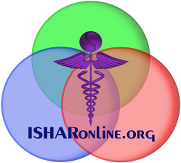An extensive data search among various types of developmental and evolutionary sequences yielded a four quadrant model of consciousness and its development (the four quadrants being intentional, behavioural, cultural, and social). Each of these dimensions was found to unfold in a sequence of at least a dozen major stages or levels. Combining the four quadrants with the dozen or so major levels in each quadrant yields an integral theory of consciousness that is quite comprehensive in its nature and scope. This model is used to indicate how a general synthesis and integration of twelve of the most influential schools of consciousness studies can be effected, and to highlight some of the most significant areas of future research. The conclusion is that an all-quadrant, all-level approach is the minimum degree of sophistication that we need into order to secure anything resembling a genuinely integral theory of consciousness.
An integral theory of consciousness
Categories:
Abstract:
Item Type:
Journal Article
Publication Title:
Journal of Consciousness Studies
Journal Abbreviation:
Journal of Consciousness Studies
Publication Date:
1/1/1997
Publication Year:
1997
Pages:
71-92
Volume:
4
Issue:
1
Library Catalog:
IngentaConnect
K. Wilber. 1/1/1997. "An integral theory of consciousness." Journal of Consciousness Studies 4: 1: 71-92.
<ref> {{Cite journal
| doi =
| issn =
| volume = 4
| pages = 71-92
| last = Wilber
| first = K.
| coauthors =
| title = An integral theory of consciousness
| journal = Journal of Consciousness Studies
| date = 1/1/1997
| pmid =
| pmc =
}} </ref>
